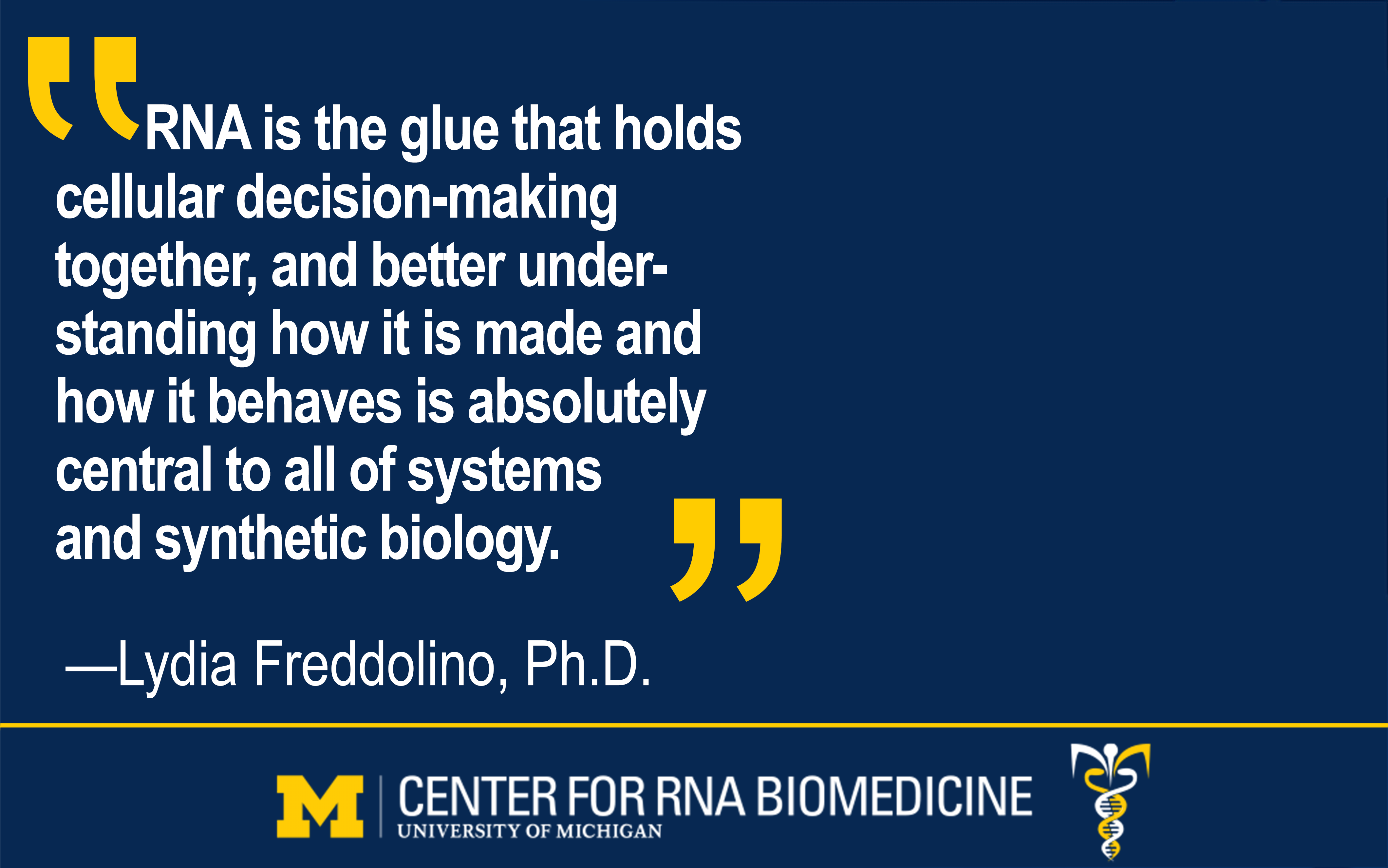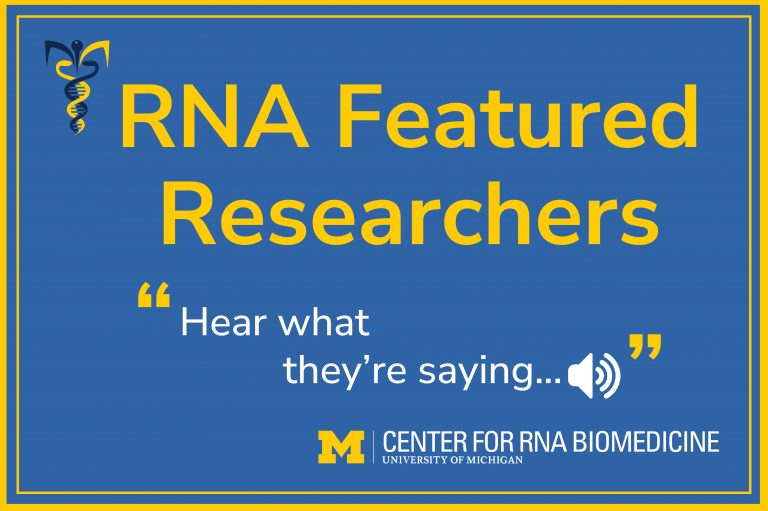RNA Featured Researcher – Lydia Freddolino, Biological Chemistry
 Lydia Freddolino, Ph.D.
Lydia Freddolino, Ph.D.
Assistant Professor
Biological Chemistry, Medical School
Lab website
Google scholar profile
In general, I’m interested in how and why bacteria make decisions. We have a love/hate relationship with bacteria: half the time we want them to make things for us, the other half, we want to kill them. Knowing how the regulatory logic of bacterial cells work, and especially how to manipulate that logic, helps us in both cases: In the synthetic biology context, we can optimize the expression of genes needed to make some biological product that we are interested in. In the infection context, we can (for example) block the expression of virulence genes to prevent disease.
- What is the role of RNA in your research?
We’re interested in decision-making processes in bacteria, and RNA is the regulatory hub – on one side, the logic of how and when RNA is made, and on the other side, when it is translated, is really defining for bacterial behavior.
- Who/what brought you to science?
I’ve always been fascinated with how living things work, and bacteria have always seemed like a great place to look – they live almost everywhere, and participate in a huge range of biological processes. I’ve wanted to study/engineer microbes since I was in high school, so it has been a lot of fun to follow a path that lets me do it.
- What brought you to the University of Michigan?
The combination of resources, great students and colleagues, and a highly collaborative atmosphere was really unique among the places that I was looking.
- What advice would you give to students who’d like to get more involved in research?
Don’t be afraid to reach out! Scientists love to talk about their work, so take a look at webpages and a couple of papers, find some work that seems interesting to you, and then email the lab head and ask whether they have room for you to get involved.
- Are there any opportunities for students to engage in your projects, currently or in the future?
Absolutely! We’re always looking for interested students to work on any of the projects in our lab.
-
- What skills would they need?
At the very least, knowledge in one of the core foundational areas of our lab – molecular biology, microbiology, bioinformatics, or programming. We can start with any of those entry points and help people get involved in a project and learn new skills in the process.
- What skills would they need?
-
- What could they expect to learn?
Because our projects are so interdisciplinary, you’ll probably pick up whichever of the skills listed above you don’t already know, and will build deep knowledge in the specific topic areas related to their project.
- What could they expect to learn?
- What profession other than your own would you enjoy, or what is your favorite hobby?
I really would have enjoyed studying political science, which has always been a side interest.

